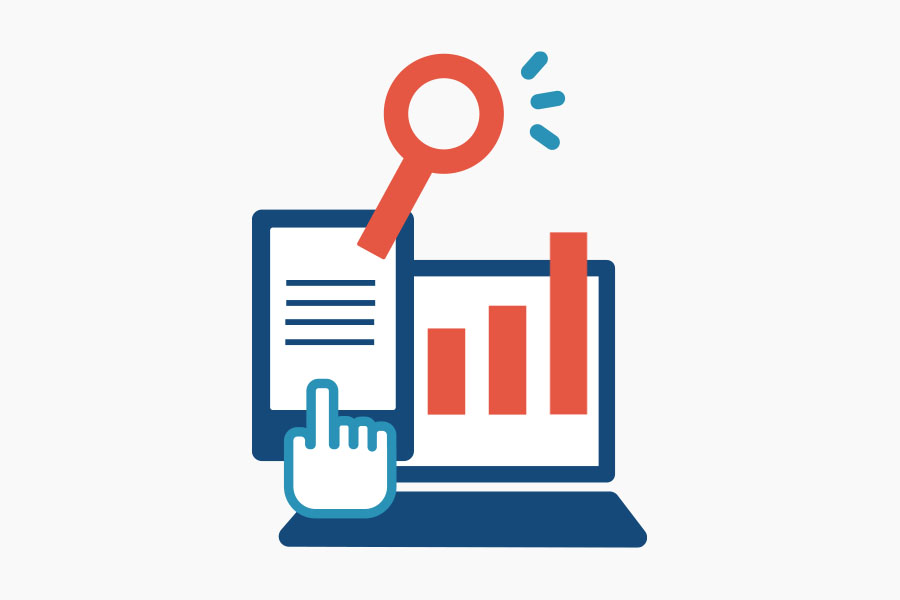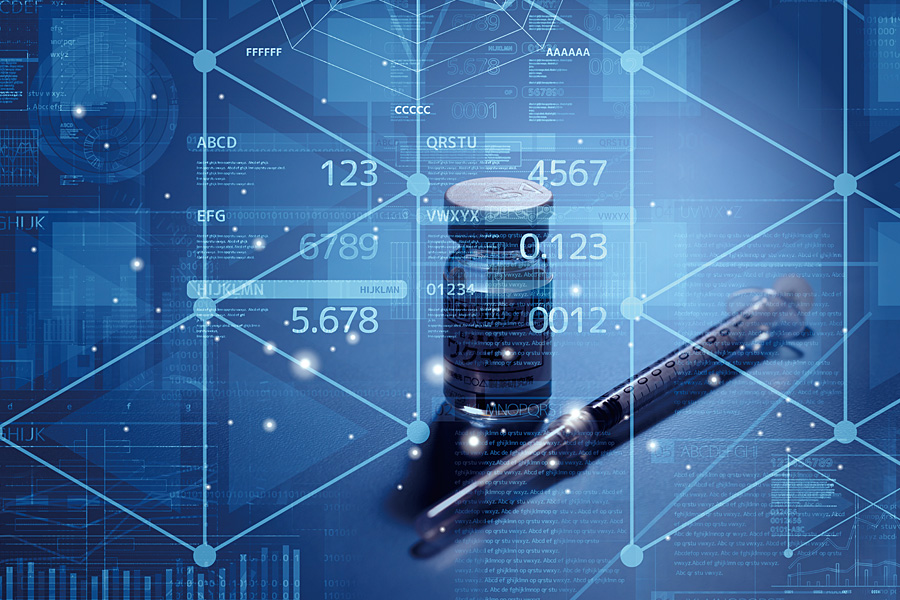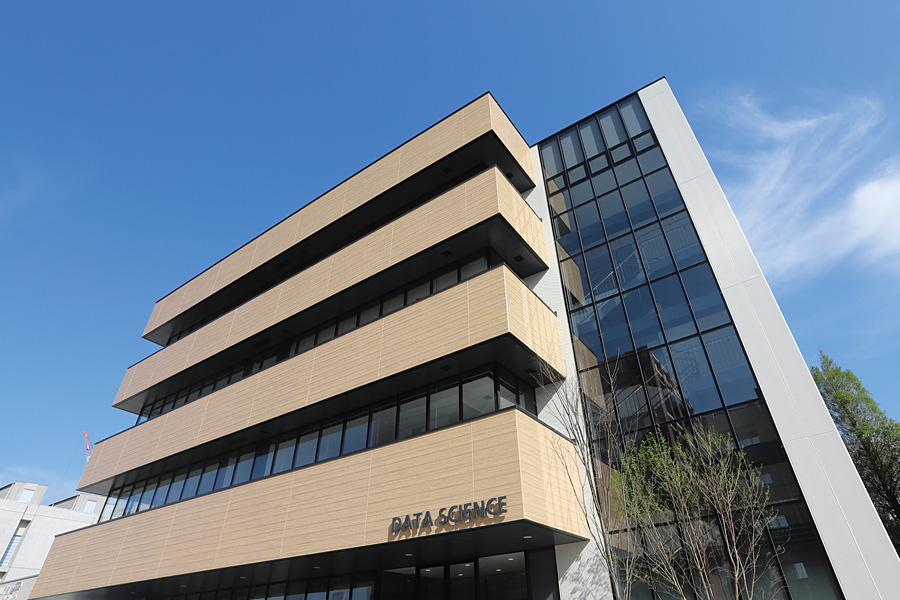- Home
- Undergraduate / Department / Graduate School
- Faculty of Data Science
- Department of Data Science
Faculty of Data Science
Department of Data Science

What is Data Science?
It is now common practice to analyze data and make new strategies at all times, both in Japan and overseas, and in a wide range of fields such as business, health care and welfare, and administration.
To that end, we must cultivate the power of "finding issues," "collecting information," "analysis," and "finding new knowledge."
Data science is a "information science" with systematic theory, but it is also a "real science" that is indispensable for business.
The so-called "data scientists", who have acquired data science that solves problems through statistical thinking based on data, are expected to play an active role in all fields around the world in the future.

Feature 1
- We analyze customer information, purchase history, website browsing history, etc., and propose "products that are likely to be purchased" to users on the site.
- When logistics companies deliver products to various locations, they analyze delivery volume, location, time, number of trucks, weather, traffic information, etc., and formulate delivery plans that optimize cost and time.

Feature 2
- By analyzing the vast amount of medical data accumulated in hospitals, we are helping to detect, prevent and treat diseases early while reducing the burden on doctors and nurses as much as possible.
- By analyzing big medical data, we search for genes that cause diseases and substances that are the source of new drugs, and contribute to the creation of new drugs.
Department of Data Science’s learning to create new value from the analyzed data
Students will be given systematic lectures so that they can acquire knowledge and skills to solve social and organizational issues and contribute to the creation of new value. In the first to second years, you will acquire basic knowledge of mathematics, information and programming, and in the second to third years, you will acquire a wide range of knowledge and skills related to statistical analysis techniques and algorithms including artificial intelligence. At the same time, you will also acquire a sense of ethics and responsibility as a technician who handles data. Throughout the first to fourth years, we develop communication skills, presentation skills, and creative thinking skills.
Personality to be nurtured and Diploma Policy The Policy for Graduation Certification and Degree Grant
Shimonoseki City University Faculty of Data Science develops human resources who can contribute to solving social and organizational issues and creating new value by proficiency in the theory and practice of mathematical statistics, informatics, and social sciences necessary to design, analyze, and utilize diverse data.
- A.
- Through his knowledge of statistics and related mathematical sciences, and his experience of analysis utilizing them, he acquires the ability to collect, organize, and analyze data, and logically consider the findings obtained from them.
- B.
- He has knowledge of algorithms such as information management, analysis, and artificial intelligence, and has the ability to analyze and utilize various forms of data and handle it appropriately through his experience of expressing them on a computer.
- C.
- By learning how data analysis is performed in the fields of business or healthcare, together with the unique knowledge of each field, students understand the role data can play in society and acquire the ethical and responsibilities (morals) necessary for handling data.
- D.
- It is possible to cooperate with various people and communicate the statistical interpretation of the analytical methods used and the results in an easy-to-understand manner.

Student VOICE
I am learning practical skills under a highly skilled teacher.
Department of Data Science (as of April 1, 2025)
Tomoyoshi Ishii (from Shudo High School, Hiroshima Prefecture)
One of the attractions of Department of Data Science is its highly technical teachers. In the Introductory Data Science Seminar, which analyzes actual data and creates effective measures, we are learning a lot of practical technologies under professors from the consulting industry. He also refined his skills outside of class, and was able to win at "Digital Control Shimonoseki". Our current goal is to develop solutions announced on digital computers before graduation and develop them to the operational stage.

Policy for organizing and implementing curriculum Curriculum policy
Faculty of Data Science organizes and implements the curriculum based on the following policies so that students can acquire the knowledge and skills set forth in the Diploma Policy.
- A.
- In the first to second years, students will acquire basic knowledge of mathematics related to data science, and in the second to third years, students will acquire lectures and exercises to acquire a wide range of knowledge and skills related to statistical analysis methods.
- B.
- In the first to second years, students will acquire basic knowledge about information and programming, and in the second to third years, students will acquire a wide range of knowledge about algorithms including artificial intelligence, as well as lectures and exercise subjects to acquire skills in data analysis and utilization.
- C.
- In the second to third years, students will learn the analysis of data in the field of business or healthcare. At the same time, students will acquire ethics and a sense of responsibility as a technician handling data through lectures and active learning-type subjects.
- D.
- Throughout the first to fourth years, students will acquire practical courses, project-type learning courses, and graduation research in order to acquire communication skills, presentation skills, and creative thinking skills.
- E.
- In order to ensure objectivity and strictness, the degree of achievement of achievement of achievement targets for each subject described in the syllabus will be evaluated multifacetedly and comprehensively using the method and criteria (regular examinations, reports, etc.) of grade evaluation.
Introduction of Courses

Clinical Research Overview
The main objective is to provide an overview of statistical considerations and procedures at various stages of medical research, including drug development such as cancer treatment. You will acquire a series of flows from the design, analysis, and interpretation of clinical trials, as well as the skills of preparing research plans (protocols) for prospective and retrospective studies. We will conduct projects on a group-by-group basis and acquire overall know-how in clinical research.

Text mining
Text mining is a technology that uses data science technology to extract useful information from text-format data transmitted on various media such as SNS, blogs, and word of mouth. By analyzing text data using statistical methods, deep learning, etc., mapping and graphing, it is possible to visualize information and discover new knowledge. In this lecture, you will learn about text mining techniques and application examples.

Information system theory
From familiar information systems, think about what an information system is, and learn about the network necessary for the information system using a simulator. Furthermore, while considering the importance of information security, we will develop practical skills by constructing an information system that links web servers, database servers, etc. Finally, you will learn the requirements definition when building an information system, and learn the flow of designing and building an information system.

Introductory Data Science Seminar
Now that data science is attracting attention, there is a need not only to "handle data" but also to "solve problems with data and create value." Group work simulates the flow of analysis projects from problem definitions and hypothesis formulation to data collection and processing, data analysis, and policy planning. Individuals will learn the skills and know-how to proceed with each process, and will also challenge trial and error and ingenuity to make good policy recommendations as a team.
Professional Education Curriculum
| 1 year | 2 years | 3 years | 4 years | ||
|---|---|---|---|---|---|
| Dedicated Gate Group Foundation |
Mathematics and Information Basics | Basics of Mathematics Information Society and Information Ethics Linear algebraic Overview of Informatics Introduction to DS Programming Probabilistic Theory |
Analysis Database Geometry Mathematical Statistics Network Technology Theory Algorithm theory |
||
| Introduction to DS and Basics | Introduction to Data Science Introductory Data Science Seminar |
Data Science Foundation Data Science Exercise Information and occupation |
|||
| Data analysis utilization | Quantitative data analysis Regression analysis Category data analysis Table Data Mathematical Analysis Datahandling Overview of Artificial Intelligence Time series analysis Bayes Statistics |
Quantitative Data Analysis Exercise Statistical modeling Category data analysis exercise Table Data Mathematical Analysis Exercise Data mining Machine learning Digital Signal Processing Technology Statistical Social Research Act Text mining Pattern recognition Social Network Analysis Statistical Social Investigation Law Exercise Data Analysis Exercise |
|||
| Exercise and Graduation Research | Colokiam I | Research Ethics | DS Project Coloquiam II |
Graduation Research | |
| Dedicated Gate O Use |
Business data Science |
Overview of Management Information Information system theory Management Information System Theory |
Operations Research Marketing research E-Commerce Theory Mathematical optimization Business Data Analysis |
||
| Health data Science |
Introduction to Epidemiology and Public Health Summary of Health and Medical Science |
Genetics Overview Introduction to Pharmacology Sensitivity Data Processing Medical Health Informatics Bioinformatics Clinical Research Overview Biostatistics |
|||
※The curriculum is subject to change.
About Mathematical, Data Science and AI Education Program
Faculty of Data Science recommends taking programs consisting of data science subjects in line with the curriculum model established by the Mathematical, Data Science, and AI Education Enhancement Consortium.
Practically learn cybersecurity knowledge that has become increasingly important in recent years
Since data held by a company is an important asset of a company, it often contains important information received from customers, it is usually managed appropriately by a system that manages information, i.e., information systems.
Licenses and qualifications that can be obtained
The following licenses and qualifications can be obtained by acquiring the prescribed credits (selection system).
● Junior high school teacher type license (math)
● High school teacher type license (math)
● High school teacher type license (information)
● Social Investigators
The expected course
After graduation, it is assumed that you will use your expertise in data science to engage in healthcare-related tasks in a wide range of industries, as a planning, marketing, system engineer, or at public institutions and medical institutions.
● Manufacturing, retail, advertising, publishing ● IT & Information and Communications ● Administration ● Health and medical institutions (including university hospitals) ● Pharmaceutical companies ● Research Institute / think tank ● Financial institutions (banks, insurance, securities, etc.) ● Graduate school entrance, etc.


Lecture Block D
On the first floor, there is a classroom where a large number of lectures and exercises can be attended by a large number of students and a rest space for students. From the second floor to the fourth floor, there are student laboratories and faculty laboratories. We have realized the closeness of the distance between students and teachers that can be consulted immediately if you have any questions.
Q&As
- Q
I was a humanities in high school, can I learn data science?
- A
Data scientists can aim regardless of humanities or sciences. In the first place, data science is a science that analyzes data and creates new value while utilizing theories such as mathematics, statistics, machine learning, and programming. To do so, it is necessary to understand society, economy, and human beings, and a literary sense is useful.
- Q
I'm not very good at mathematics, can I keep up with the class?
- A
A minimum of mathematical knowledge is required, but advanced mathematical knowledge is not necessarily required. After enrollment, you will learn the basics of mathematics related to data science as a "Basic Specialized Course". In addition, we are preparing a system for remedial learning.
- Q
What kind of fields can you play after graduation?
- A
Human resources who can utilize vastly accumulated big data will be required in a wide range of fields, both public and private sectors. In particular, OIST is expected to learn practically in the two pillars of "Business Data Science" and "Health Data Science" and play an active role as a planning, marketing analyst, SE, etc.
Teacher introduction
"Data science" with a view to the future that learns deeply and widely from specialists.







